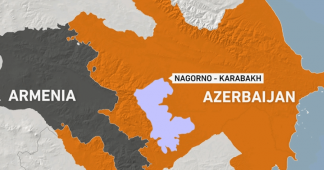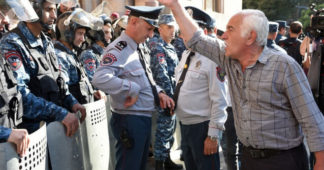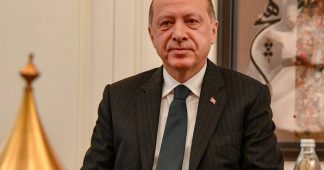A Bitter Conflict Ends by Force, Not Diplomacy
By Anthony Halpin
Sep 20, 2023
Welcome to Balance of Power, bringing you the latest in global politics. If you haven’t yet, sign up here.
One of the world’s most bitter and intractable territorial disputes appeared to be close to a resolution today, though it’s not a triumph for diplomacy.
Renewed fighting erupted in Nagorno-Karabakh after Azerbaijan declared it intended to take full control of the region from Armenians living there who’ve sought independence for decades. After two days of combat, the Armenians effectively conceded defeat, agreeing to disband their defense forces and hold talks with the government in Baku.
The conflict is another legacy of the collapse of the Soviet Union that diplomacy has failed to resolve, as major powers jostled for influence in the Caucasus region that’s a key bridge to the mineral and energy riches of central Asia bypassing Russia.
Nagorno-Karabakh has a majority Armenian population though it’s recognized internationally as part of Azerbaijan. Repeated efforts by Russia, the US, France and the European Union to negotiate a lasting resolution to the conflict had failed since the early 1990s when Armenians broke away after the Soviet collapse.
The outcome is a personal triumph for Azerbaijani President Ilham Aliyev, who ignored demands from the US, France, the EU and other powers to halt the offensive.
Russian troops on the ground mediated today’s agreement, helping to strengthen Moscow’s hand in a region where its grip weakened after a 2020 war between Armenia and Azerbaijan over the territory. Turkey gained influence after helping its ally Azerbaijan.
Relations between Russia and Armenia, long Moscow’s closest ally in the region, have been strained recently as Prime Minister Nikol Pashinyan has sought to strengthen ties with the US and the EU. Pashinyan now risks a backlash from critics at home over his refusal to aid Armenians in Nagorno-Karabakh that Russia may seek to exploit.
A final peace deal between Armenia and Azerbaijan has still to be agreed. Others involved in territorial disputes will note, though, that decades of talk proved less effective than days of force.
Continue reading at www.bloomberg.com
We remind our readers that publication of articles on our site does not mean that we agree with what is written. Our policy is to publish anything which we consider of interest, so as to assist our readers in forming their opinions. Sometimes we even publish articles with which we totally disagree, since we believe it is important for our readers to be informed on as wide a spectrum of views as possible.











